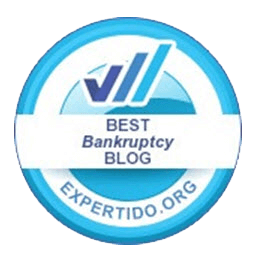The primary goal of filing for bankruptcy is to give debtors a chance to live their lives and fix their finances without worrying about insurmountable debt. However, many people are concerned about losing property when they file for bankruptcy. Understandably, one of the most commonly asked questions about the bankruptcy process is, “What property can I keep?”
The answer to this question will depend on the specific type of bankruptcy you want to file, the specific type of property, and the property’s value when you file for bankruptcy.
Using Bankruptcy Exemptions to Keep Property During Bankruptcy
In general, filing for Chapter 7 bankruptcy will protect most of your property. However, you may have to sacrifice some of them to discharge your debts. On the other hand, filing for Chapter 13 bankruptcy will protect almost all of your property because you will have to repay some of your debts.
The bankruptcy exemptions in South Carolina detail the specific properties you can keep when you file for Chapter 7 and the amount you must pay to some of your creditors when you file for Chapter 13. These exemptions, which are capped at certain amounts, include, but aren’t limited to, the following:
- Motor Vehicle Exemption
- Homestead Exemptions – These include your home or primary residence, a burial plot, and the interest of a surviving spouse in the property. It’s also crucial to note that spouses who co-own the home and file for joint bankruptcy can claim double exemptions.
- Personal Property Exemptions – These include clothing, appliances, animals, jewelry, household items, health aids, books, crops, musical instruments, and firearms. These also include liquid assets and cash if you are not claiming the homestead exemption and financial recoveries from personal injury and wrongful death claims.
- Tools of The Trade Exemptions – These include trade implements, books, and tools.
- Retirement Accounts – These include retirement and pension accounts of firefighters, police officers, public employees, attorneys, judges, and generally assembly members.
- State-administered Public Benefits, including workers’ compensation, crime victims’ compensation, public assistance, disability, unemployment, illness, and veteran’s benefits
- ERISA-qualified benefits, traditional IRAs, and Roth IRAs
- Insurance Exemptions, including disability and accident benefits, proceeds of group life insurance, annuity contract, or life insurance, and fraternal society benefits
- Child support and alimony
- SC 529 college plan
- Business partnership property
While you can’t use federal bankruptcy exemptions when you file for bankruptcy in South Carolina, you can use federal non-bankruptcy exemptions to safeguard certain properties. Also, you must have lived in SC for a minimum of two years. Otherwise, you can’t use the state’s exemptions and must use the exemptions in the last state you lived in. Take note that qualification requirements and amounts for bankruptcy exemptions may also change without notice.
Get Legal Advice From a Seasoned South Carolina Bankruptcy Attorney Now
At Reed Law Firm, our South Carolina bankruptcy attorney can help you determine the bankruptcy chapter that will best fit your needs while protecting the property you want to keep. To schedule your free consultation with our South Carolina bankruptcy attorney, call 803-726-4888 or send us a message online.


